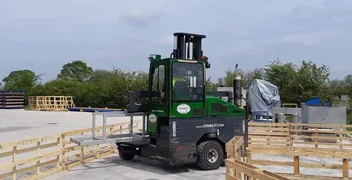Supply Chain Warehouse
Apprenticeship Level 2
| Our achievement rates in this apprenticeship are: | |
|---|---|
| XX% which is 12% above the national average |
|
| Occupations | |
|---|---|
| Warehouse service assistant | ✔ |
| Warehouse Picker and Loader | ✔ |
| Warehouse Operative | ✔ |
| Level | |
|---|---|
| Level 2 - equivalent to GCSE | ✔ |
| Essential workplace skills | ✔ |
| Vocational skills | ✔ |
| Essential workplace behaviours | ✔ |
| Training Locations | |
|---|---|
| Employer's warehouse facility | ✔ |
| Getting started | |
|---|---|
| January, May & September | Starts |
| Training places subject to caseload capacity | Please enquire |
| Geographic locations - some restrictions apply | Please enquire |
| Training Access & Support | |
|---|---|
| Access Didac's eLearning Portal | ✔ |
| One-to-one training sessions | ✔ |
| Regular reviews with your trainer and employer | ✔ |
| ePortfolio - to record training & development | ✔ |
| Opportunities to improve your maths & English skills | ✔ |
| Duration | |
|---|---|
| Minimum of 12 months, typically 15months | ✔ |
| Funding - England | |
|---|---|
| Government Funding | ✔ |
| Funding Value | £5,000 |
| Employer Contributions | £1,000 |
| Age grants for employers - England | |
|---|---|
| Under 19 Apprentice - 3 months | £500 |
| Under 19 Apprentice - 12 months | £500 |
| Occupational Standard | |
|---|---|
| Supply Chain Warehouse Operative | |
| Wales, Scotland & Northern Ireland | |
|---|---|
| Please contact us for commercial options | |
Supply Chain Warehouse
Apprenticeship Level 2
Skills for working in warehouse environments
Taking deliveries, checking for damaged/missing items, storing goods, moving stock by various methods, picking/packing orders, loading goods for dispatch, maintaining stock records and documentation
Warehouse Operatives communicate with a wide range of people and customers. Part of their job role is to meet customers’ expectations by providing a quality service that encourages repeat business.
Individuals in this role are highly competent in using industry-recognised systems and associated services (eg Traffic/Warehouse Management Systems) and will be able to work under pressure to tight deadlines.
Whether you are leaving school or looking to change career to work in a warehouse environment this is a great apprenticeship standard because it provides the knowledge and skills you will need to kick-start your career.
Frequently, it is the gateway to a whole host of career opportunities with progression into customer service, sales, purchasing, product specialist roles, logistics and administration.
The apprenticeship is equally applicable for employers with small warehouse facilities or large state of the art warehousing facilities.
With Didac’s warehouse and merchant training experience, we can create stimulating training plans to cover specialised trade counter situations.
Click the Add to Enquiry button below to find out more by registering your interest with us. You are not committing to anything.
Specification
| Accreditation | |
|---|---|
| Delivery |
You must:
- be 16 or over
- not already be in full-time education
- live in England to qualify for Didac funded apprenticeships
You can start an apprenticeship whether you’re starting your career, want a change or you’re upskilling in your current job. You can have a previous qualification like a degree and still start an apprenticeship.
As an apprentice you’ll:
- learn and train for a specific job
- get paid and receive holiday leave
- get hands-on experience in a real job
- be given the opportunity to improve your maths and English skills
- study for at least 20% of your working hours off-the-job
- complete assessments during and at the end of your apprenticeship
- be on a career path with lots of future potential
- Safe driving and/or operating techniques – to standard and as trained, relating to MHE (e.g. Counterbalance/Reach Trucks, Powered Pallet Trucks, Ride on Pallet Trucks, Order Pickers, Narrow Aisle Pickers, Mobile Elevated Work Platforms, Forklift Trucks) as relevant to your role and setting; adherence to safe practice when working at heights.
- Steps to take to minimise the effect – your (and the wider industry) has on the environment; the need to maintain a high level of housekeeping and manage waste effectively; using packing materials efficiently to reduce waste and costs; the consequences of not using or disposing of these correctly.
- Safe use of equipment and machinery – where to find instructions/guidance; consequences of incorrect use.
- Use of warehouse systems and processes – relating to packaging, moving and receiving stock (eg Load Container Lists) within a warehouse environment to facilitate the safe handling of goods and an effective and efficient service to internal/external customers.
- Basic IT applications – and other relevant technology and systems, including warehousing management, data capture, radio and barcoding systems to ensure the safe and efficient processing of goods.
- Relevant regulation and legislation – (including international where relevant to role) governing the supply chain industry, your subsector and role in particular; consequences of not adhering to legal guidelines.
- Effective communication with customers – that store goods with the company/colleagues (including those working remotely, third party carriers, agencies and other organisations) in line with situation and organisational style/culture.
- Structure of the industry – methods and modes of transport; roles available within the sector in general and in relation to your own career aspirations.
- The importance of delivering excellent customer service – to customers and colleagues, including identifying needs and responding appropriately in line with situation and organisational style/culture.
- Vision, objectives and brand of the organisation – the importance of organisation reputation and what can affect it; how your own performance can contribute to organisational success and support or impact on others.
- Proposed and actual changes – to systems, processes and technology used in the industry, particularly relating to own role; how to keep up to date with any changes in the systems, processes and technology that affect your role.
- How the role can affect your health – and the need to maintain a level of fitness appropriate to the needs of the role.
The apprenticeship will give you the opportunity to develop the following skills. These are transferable life-time skills for personal and career development.
- Operate and handle equipment safely and efficiently – as required for you role, such as Forklift Trucks, High Reach Trucks, Powered Pallet Trucks or Man Up Trucks; manoeuvre vehicles in restricted spaces; safely use and position vehicle fitted equipment such as mirror requirements.
- Comply with appropriate rules – regulations and processes for safely and efficiently moving, handling, packing and unpacking different items, both manually and using relevant equipment (such as MHE, vehicle and delivery systems); understand consequences of incorrect use.
- Work individually and as part of a team – to safely move and handle objects; maintain a high level of housekeeping and manage waste effectively; know where to find instructions or guidance; check for damaged or missing items as appropriate; take responsibility for maintaining health, safety and security of people at all times.
- Safely and efficiently load and unload – items into and from vehicles, buildings, containers, lift vans, crates and/or boxes; use appropriate MHE or machinery where necessary; ensure items are safely and efficiently packed, assembled and/or disassembled as appropriate.
- Select, prepare and use packaging materials – appropriate to the job efficiently and in a way which reduces waste, costs and environmental impact; taking into consideration the item(s) to be moved, and their current and final destinations.
- Use correct equipment and procedures – to record receiving or stowing goods; produce relevant paperwork or labelling processes.
- Promote the values of the organisation – communicate effectively with customers and colleagues to identify and meet their needs.
- Work effectively in a warehousing team – including when under pressure, and to agreed deadlines; adapt to change in line with internal and external customer needs or circumstances.
- Use IT applications and other relevant technology – and systems, including warehousing management, data capture, radio and barcoding systems, to ensure the safe and efficient processing of goods.
The warehouse operative apprenticeship is a frequently a gateway to a career on a trade counter, in sales, procurement, logistics and management. If you progress to any of these roles there is a ‘progression’ apprenticeship that will enable you to continue your further education. An apprenticeship at level 3, such as team leading is the equivalent to A’ Level.
You may also like…



Polli Morrow
We hired Ray Fearon from DIDAC woodworking academy to come to our Men’s Shed to teach us safety in our workshop. He was an excellent instructor. Thorough, knowledgeable, approachable and a person one could approach to ask any question. We learnt a lot from him and going forward we are passing that information to our members.





